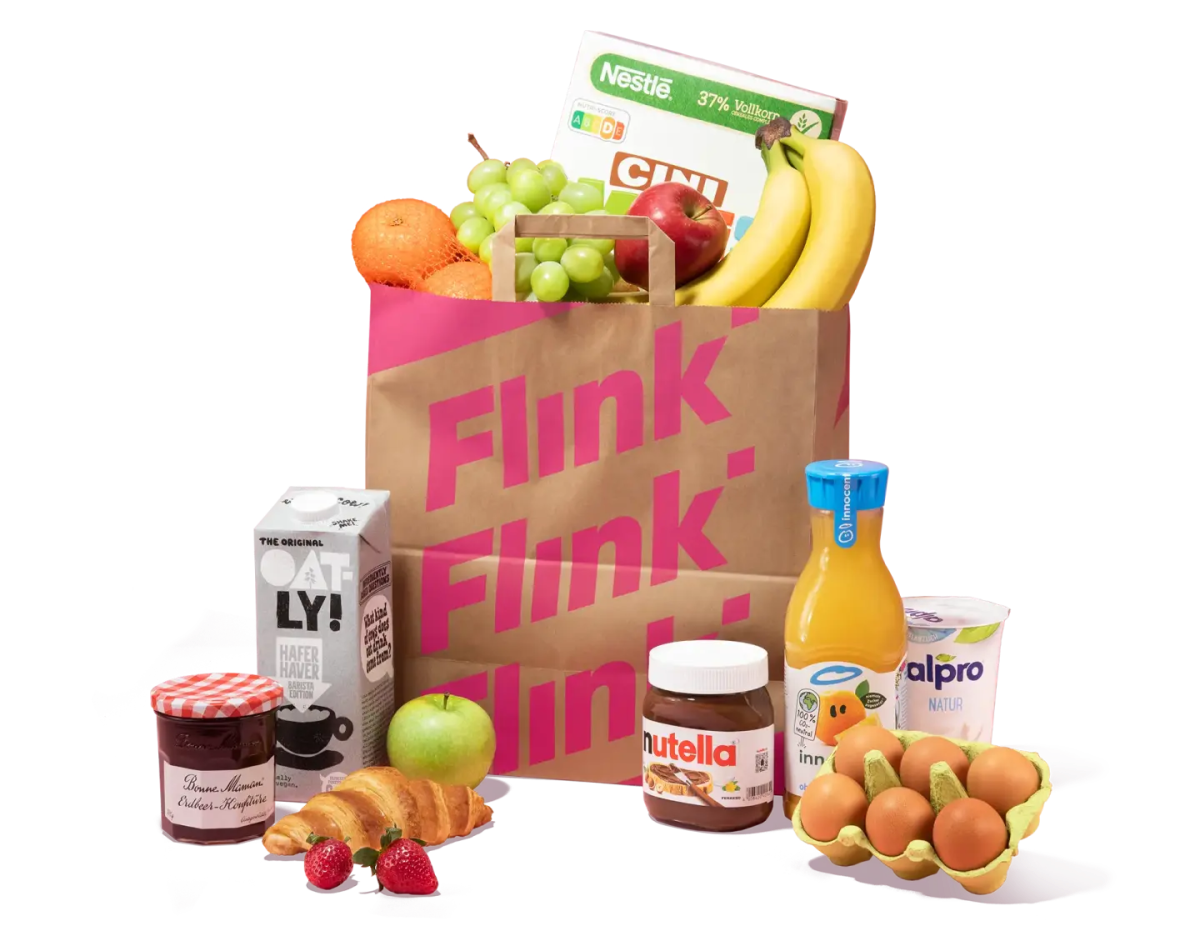Flink, the quick commerce startup out of Berlin that was an acquisition target first of Gorillas, then Getir, and then Amazon, and then Gopuff, today made a move that spells out how it plans to go forth on its own. The company has confirmed a fresh fundraise of $150 million — $115 million in equity and $35 million in debt — money that it plans to use to double down on business in Germany and the Netherlands in partnership with another big player in delivery, Just Eat Takeaway.com.
The funding is coming from a mix of existing and new investors. BOND, Mubadala, Northzone, supermarket giant REWE are all putting money into Flnk, along with two unnamed investors. The company would not not confirm nor deny whether Just Eat Takeaway is one of the unnamed investors. The Dutch company had also been interested in a merger with Flink, and it looks like, for now, they are working together in what Flink is describing as a “preferred partnership.” REWE was an existing preferred partner of Flink’s.
“With the support of our investors, we are entering an exciting new phase of growth,” said Oliver Merkel, founder and managing director of Flink, in a statement. “This investment will enable us to further expand our footprint, improve operational efficiency, and continue delivering the fast, reliable service that our customers rely on.”
Flink is not disclosing its valuation with this round but sources close to the company say that it is just under $1 billion. We have asked for comment from the investors and will update this post when we learn more.
For some context, at the peak of interest for quick commerce, Flink was valued at close to $3 billion when it took an investment from DoorDash in December 2021, and just months later it raised more financing that put its valuation at close to $5 billion, according to sources.
Some further context: in April this year, it was rumoured that Flink raised $106 million while exploring a sale to either Getir or Just Eat Takeaway. From what we understand that capital was a mixture of bridge financing and other commitments that dated as far back as 2022. And since then, the erstwhile aggressive Getir has seriously retreated. However, some of the report was accurate: Just Eat Takeaway indeed is in the mix today. (And today’s funding round, we are told, is a fresh deal.)
The news of the new capital for Flink comes at the tail end of what has been a very tumultuous time in the so-called instant delivery market.
This branch of e-commerce — in which the online retailers offer a typically smaller assortment of goods that they house in their own distributed “dark stores” and then offer for delivery in an hour or less to buyers — made a huge splash at the start of the Covid-19 pandemic, when they came in as a handy way for consumers who were either sheltering in place or interested in keeping more social distance to get items they might have quickly gone to buy themselves in the past.
That gap in the market proved to be catnip to investors, who poured in billions to a plethora of startups, which took the same route as ride hailing companies with splashy and expensive marketing campaigns to lure users. (Notably some of Flink’s investors getting announced today were part of that rush.) It was all a house of cards, and many of them either collapsed or were scooped up by rivals.
Flink itself was very much a part of that expansion, consolidation, and retreat: it acquired France’s Cajoo in 2022 — at the time seen as a saving-face move for the French operation. Now Flink has officially called it quits and has left France.
Just as Getir has retreated to its home market of Turkey, Flink is also narrowing its focus in hopes of better unit economics, with any future ambitions of building coming from that more solid base. Today, it is all about Germany and the Netherlands. Flink said that it expects to make $600 million in gross revenues in 2024 in the two countries, up 20% compared to 2023. It also said it is now Ebitda-break-even in both markets and “targets” overall profitability by Q2 2025 with average orders (also called basket size) of $40.
Overall it has 146 hubs in the two countries across some 80 cities, and it said it will be opening 30 more locations in the next year. It has 8,900 employees as of today.




